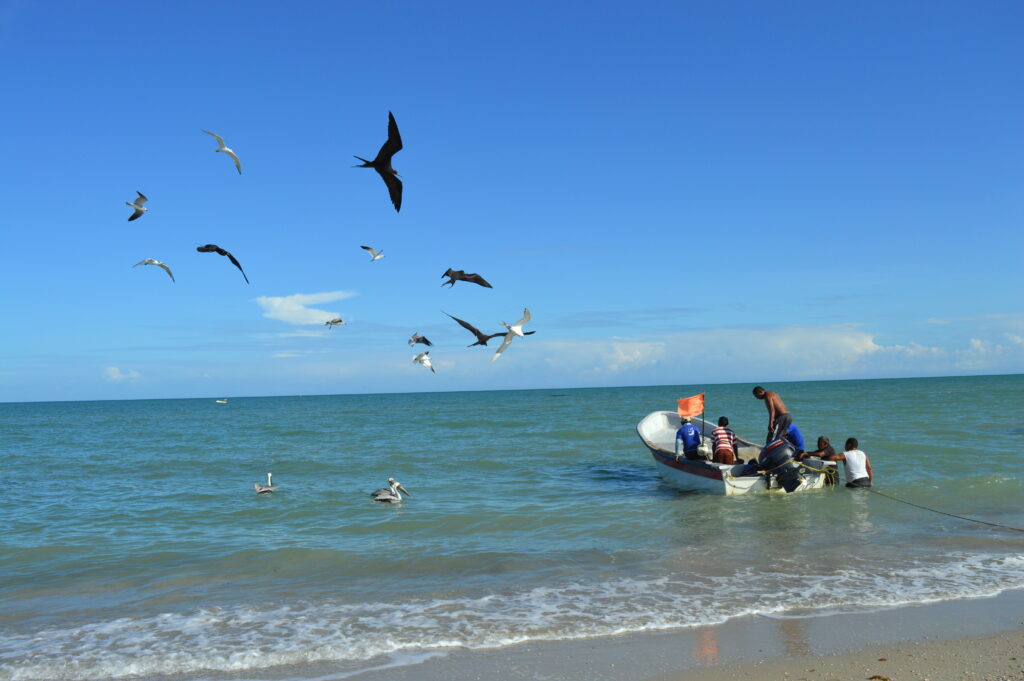
Discover how the ecological practices of the Wayuu, rooted in traditional knowledge and sustainable customs, contribute to environmental conservation in the arid La Guajira Peninsula.
Ecological Practices of the Wayuu: Sustainable Agriculture
How do the Wayuu adapt agriculture to the desert environment? ecological practices of Wayuu include unique agricultural techniques that allow them to thrive in arid conditions. One notable example is the cultivation of frijol guajiro, a plant that enriches the soil and withstands drought. They also use crop rotation and intercropping to maximize productivity and prevent soil degradation.
Ecological Water Management Practices of the Wayuu
Water is a precious resource in La Guajira. The practices of Wayuu include sophisticated rainwater harvesting methods and the use of natural reservoirs (jagueyes) to secure water supply during dry seasons.
Cultural Preservation as a Tool for Environmental Conservation
Sustainable gastronomy Wayuu sustainable gastronomy is a vital part of their ecological practices. By using local and seasonal foods, they reduce environmental impact and ensure ingredient freshness.
How do Wayuu crafts contribute to environmental sustainability? Wayuu mochilas, made from natural fibers and dyed with plant-based colors, reflect the practices of community. These handcrafted bags promote responsible consumption and contrast sharply with fast fashion.
Ecological practices Innovations: Blending Tradition and Progress
How is the Wayuu community involved in renewable energy projects? La Guajira’s strong wind currents support renewable energy initiatives. The Wayuu integrate their ecological practices into these projects through training and employment, ensuring direct community benefit from the green economy.
What collaborative efforts are improving water access for the Wayuu? International organizations have partnered with the Wayuu to enhance water access by implementing sustainable management systems. These systems combine traditional ecological practices of the Wayuu with modern technologies like filtration systems and the restoration of jagueyes.
Addressing Challenges: Preserving Wayuu Practices
What are the impacts of climate change on the Wayuu’s traditional lifestyle? Climate change poses significant risks to the ecological practices of Wayuu, affecting agriculture, water systems, and food security. The Wayuu respond with climate-resilient crops and improved water storage techniques.
Need for governmental support Government investment is essential to uphold and expand the ecological practices of the Wayuu. Infrastructure development and training programs are vital to sustaining these efforts.

Applying Wayuu wisdom globally practices of Wayuu offer valuable insights for global sustainability strategies. Their holistic environmental perspective and sustainable agriculture provide replicable models for eco-conscious living.
Integrating traditional knowledge with modern science Partnerships between indigenous communities and scientists enhance the effectiveness of conservation efforts. Merging Wayuu ecological practices with scientific methods leads to culturally relevant and innovative solutions.
Cultural preservation through these practices Supporting Wayuu craftsmanship and sustainable living contributes to environmental and cultural preservation. Promoting these ecological practices helps maintain the community’s identity and resilience.
Advocating policy for Indigenous ecological rights Policy changes must acknowledge and support the ecological practices of the Wayuu. Recognizing their environmental stewardship is key to inclusive environmental governance.
Raising Awareness About Indigenous Ecological Knowledge Educational initiatives and global media can spotlight the ecological practices of the Wayuu. These efforts foster respect and appreciation for their role in planetary health.
In conclusion, the ecological practices of the Wayuu people serve as a powerful example of how traditional knowledge and cultural identity can contribute to global sustainability efforts. By blending ancestral wisdom with modern science, and by maintaining a deep respect for the land and its resources, the Wayuu not only protect their environment but also offer a framework for addressing the urgent ecological issues facing the world today. Their way of life reminds us that true sustainability is rooted in harmony with nature, cultural preservation, and intergenerational knowledge.
Discover our online store featuring a stunning collection of Wayuu bags. Shop now and embrace the beauty of tradition!